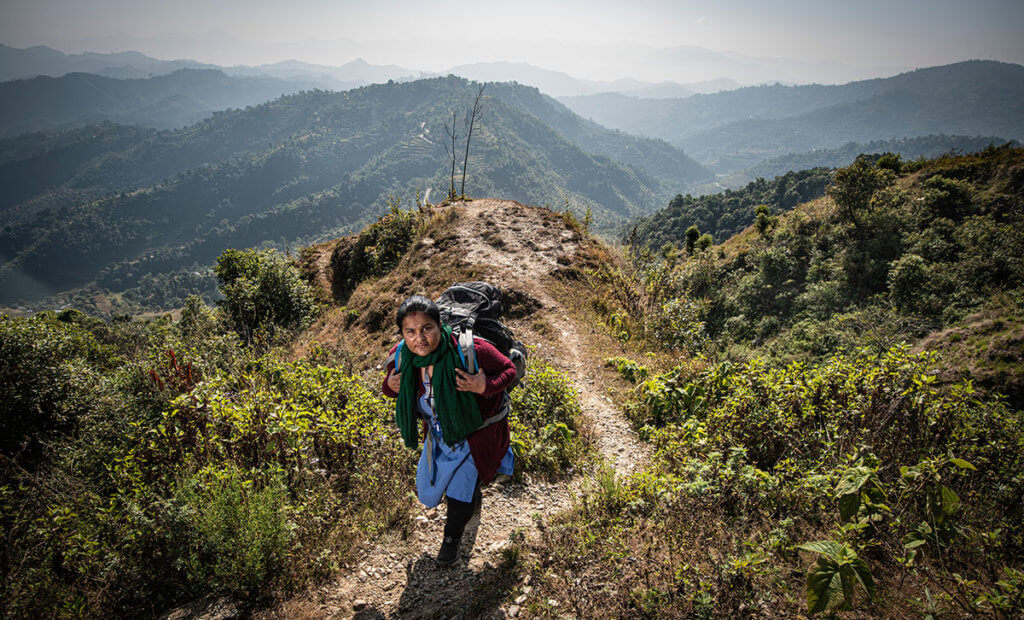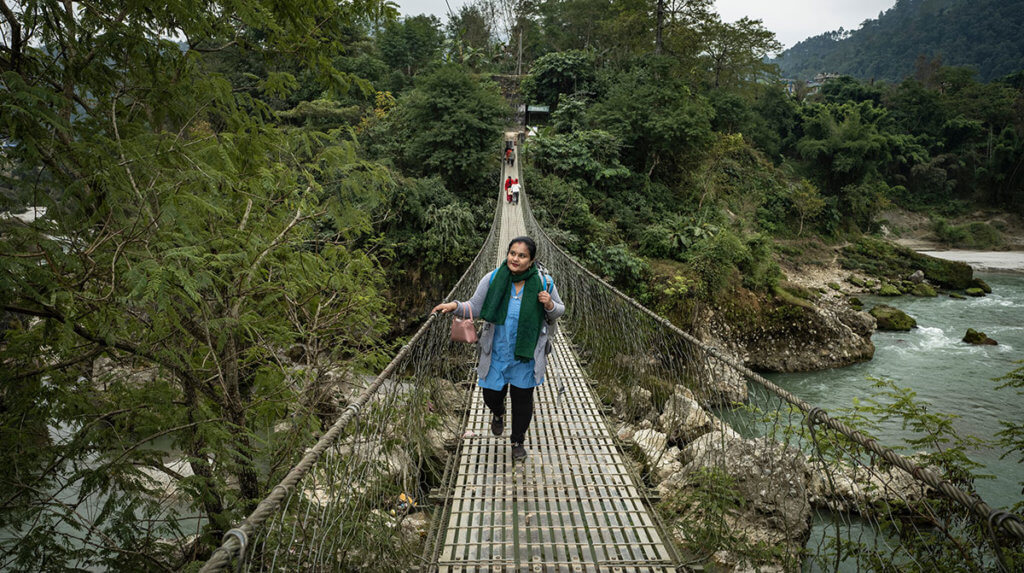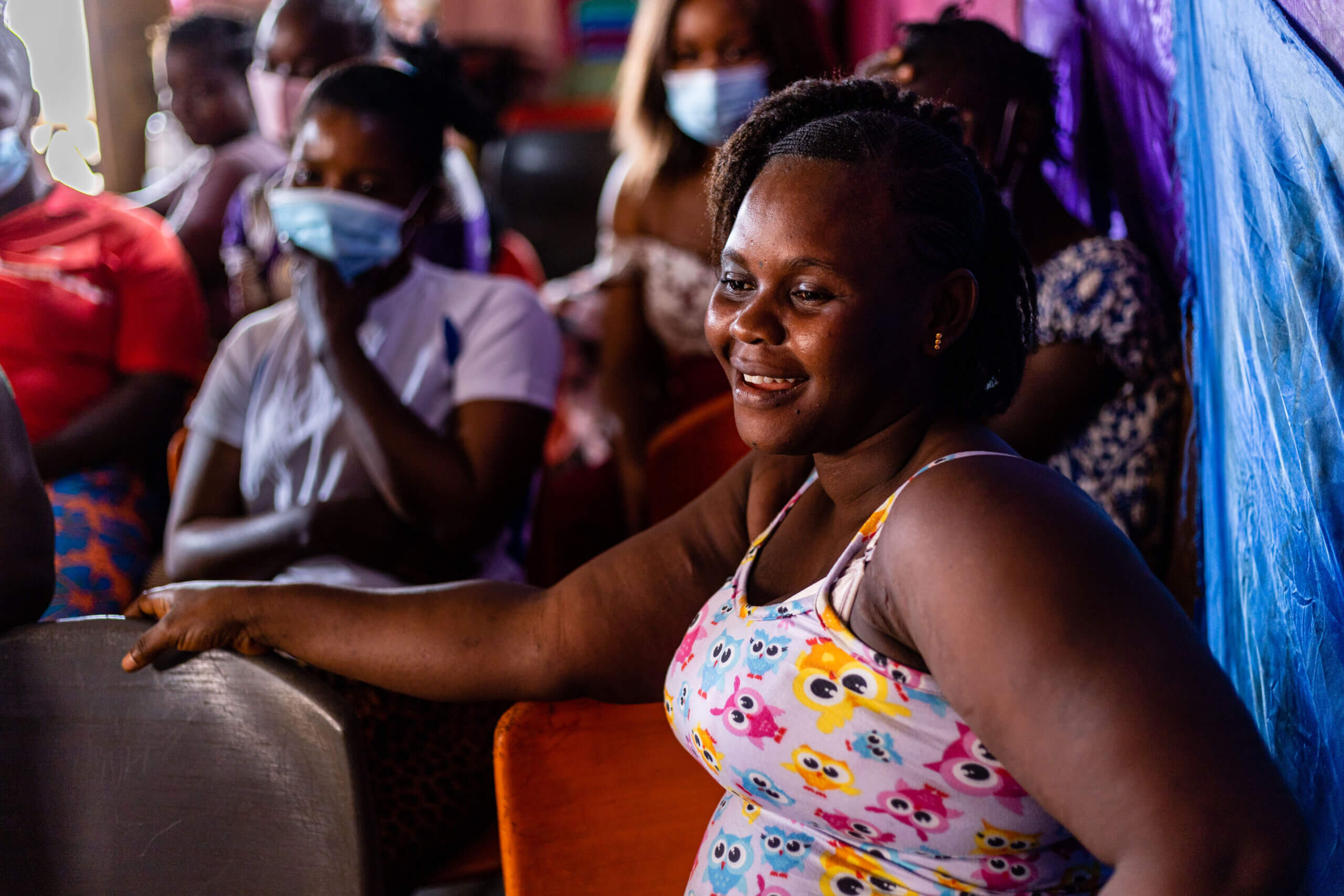Wherever, whenever: How bold women ensure choice is accessible to all
In the mountain villages of Nepal, the nearest pharmacy or health outpost might be days of walking away. Within these small communities, reproductive healthcare is often unavailable. As a result, women in Nepal have an estimated 539,000 unintended pregnancies each year. In fact, fewer than half of women who want to prevent pregnancy are using contraception.
Treacherous journeys to provide choice
Pragati is working to change that. An MSI midwife, she travels from village to village in the Tanahun District bringing choice to women and girls with few other options.

Pragati travels with a pack of supplies on her back, navigating mountain roads throughout the region. It’s notoriously difficult to reach the mountain villages of Nepal with modern services. In such rugged terrain, the only solution is providers like Pragati physically trekking to each location. The roads are often flooded, and she faces the constant threat of landslides.
Choice is a lifeline
Despite the treacherous journey, the trip is worth it. The women in these villages depend on Pragati. Women often become pregnant young in these communities, and without sufficient space between pregnancies, threatening their health. They have limited financial and educational opportunities. Because modern reproductive healthcare isn’t always available, women too often turn to unsafe abortion practices to end unwanted pregnancies. In circumstances like these, access to safe, modern contraceptives is a lifeline. It gives women the opportunity to take control of their futures.
In these small villages there are no doctors or nurses and no pharmacies where they can buy condoms or any other type of contraception. One woman told Pragati’s colleague that in her village, it used to be difficult for women to find family planning services. The nearest healthcare facility is a two or three-day walk. Even if a woman could find the time and afford the services, it would be dangerous for her to travel alone.

Another client told us that she chose an arm implant, a long-acting contraceptive method. She explained, “having too many children can damage my health and I can’t give a third child food, clothes and education because we are in a bad financial situation.”
At MSI, we’re committed to leaving no one behind. That means reaching the communities that no one else serves, no matter how far we have to travel to get there. Bold women like Pragati and generous donors are ensuring that women throughout Nepal can access the contraception they want and need.






